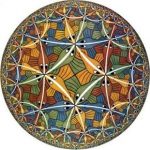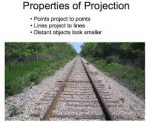In my last post I tried to argue that Humberto Maturana’s biology of language might have something to say about the biological nature of mathematics. This biology of language that Maturana proposes is understood in the context of autopoiesis (the continuous self-creation of any living system) that is his fundamental definition of life. I […]
|
|||||
|
I have long been interested in the notion of autopoiesis introduced by Humberto Maturana and Francisco Varela in 1972. In short, autopoiesis is the model of living systems that sees every living system (from single cells to multicellular organisms) as individual unities whose living is the creation of themselves. Through the interaction of their […] A recent post on scientificamerican.com got my attention – no surprise given its title, Could Multiple Personality Disorder Explain Life, the Universe, and Everything. It was coauthored by three individuals: computer scientist Bernardo Kastrup, Psychotherapist Adam Crabtree, and cognitive scientist Edward F. Kelly. The article’s major source is a paper written by Kastrup, published this […] Earlier this month, Nature reported on Artificial Intelligence (AI) research, where deep learning networks (an AI strategy) spontaneously generated patterns of computations that bore a striking resemblance to the activity generated by our own grey matter – namely by the neurons called grid cells in the mammalian brain. The patterned firing of grid cells enable […] I have been particularly concentrated on whether mathematics can tell us something about the nature of thought, something that we have not yet understood about what thought is made from, how it happens, how it is connected to everything else in the universe. These questions inevitably point me in the direction of research in cognitive […] I’ve written before about how probabilities are used to understand human perception, understanding, and learning. Joshua Tenenbaum uses probabilistic inferencing to account for how we come to learn concepts, acquire language, and understand the world around us quickly, and with very little information (How to Grow a Mind). Optical illusions are created by statistical judgments […] I find the relationship between mathematics and vision fascinating. Even within mathematics itself, seeing how the geometric expression of ideas can clarify or further develop countless mathematical thoughts is always worth noting – like the graphs of functions, or the projections of figures. I’ve written before about the relationship between the brain’s visual processes and […] 
Recently I became particularly sensitive to discussions that address ‘meaning’ as an emergent property of both biological and formal systems (of which mathematics is one). And this is because it is the meaning of symbols in mathematics that is the source of its power. But it is not at all clear that the meaning of […] 
Deciphering the principles of self-organizing systems is often at the heart of new ideas in biology, including neurobiology. A complex, self-organizing system contains a large number of elements that have predictable, local interactions with each other, but these local interactions create global properties that cannot be predicted from even the most well-understood local events. This […] I have made the argument on more than one occasion that a refreshed look at mathematics may help illuminate the relationship between our experience of the physical and our experience of the thoughtful. Mathematics is a discipline characterized by complex relations among abstract things but, as has been explored from many directions, the action of […] |
|||||
|
Copyright © 2025 Mathematics Rising - All Rights Reserved Powered by WordPress & Atahualpa |
|||||


Recent Comments